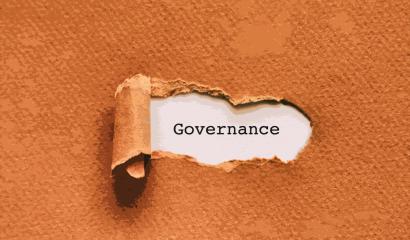Ali Abbas
ESG covers the gamut of operations across organisations, but the environmental pillar often takes centre stage. Regulatory Lawyer, Barrie Ingman, tells us how the social element of ESG is just as critical to tackle.
One could be forgiven for thinking that Environmental, Social and Governance (ESG) was predominantly about climate change given the amount of attention it has received over the last 5 years. Social and governance considerations, by comparison, have barely been given a look in.
Even within the Environmental ‘E’ of ESG, climate change has dominated, with issues such as loss of habitat and biodiversity, and pollution of
… the air we breathe
… the water we drink
… the soil we use to grow the food we eat
all getting much less attention.
In some respects, this approach is to be expected: every day we hear scientists warning us that the clock is moving ever closer towards doomsday, and we are running out of time to save the planet!
However, some see this preoccupation with climate as a first world phenomenon. Speak to the billion and more vulnerable men, women, and children at the bottom of our global supply chains, who:
- live in unsanitary conditions,
- do not have access to adequate food, clean water, or medicine, and
- who are forced to labour under dangerous and inhuman working conditions
…and you will not be surprised to discover that they put these more immediate ‘social’ considerations far higher up the ESG agenda than climate change.
So what hope do ESG regulations present for these individuals when all we hear about is climate change? The answer is some, potentially.
This is because the most advanced regulators and legislators are dotting the ‘i’s and crossing the ‘t’s of the final first batch of climate-driven financial regulation and are gearing up to commence work on the second phase of the Great ESG Financial Regulation project: the S of ESG.
The first signals of this are coming from those regulatory pioneers in Europe who are close to finishing their Environmental Taxonomy and are now turning their attention to a freshly minted draft proposal for a social taxonomy.
Likewise, the FCA is contemplating a roll out of a UK version of the EU’s financial product disclosure rules (the SFDR), which would cover the full ESG spectrum, not just climate aligned matters.
Meanwhile, many believe we are on the cusp of a Great Greenwashing litigation bonanza, as regulators turn from implementation to enforcement of ESG regulations and so anyone claiming their products are green, or have a social element to them, better have the data to back it up….
But what do regulators and legislators mean by ‘social’ considerations
Well, the EU, taking its initial inspiration from the United Nations ‘Sustainable Development Goals’, has, in its draft Social Taxonomy, broken it down by stakeholder groups as follows:
Employees
As part of the ‘just transition’ agenda, this objective focuses on ensuring that human rights are preserved across supply chains and factors such as guaranteeing social protections and ensuring decent, stable employment, diversity, equality, and inclusion are promoted across the labour arena.
Consumers
Here the focus is on quality of life and living standards and includes issues such as individual data protection and cybersecurity and responsible marketing and communications. It also covers promotion of access to sustainable products including food, and access to basic services, such as healthcare, housing, education, electricity, and water.
Communities
This final objective concerns promoting inclusive and sustainable communities and societies and centres on the promotion of universal basic economic infrastructure such as access to power, transportation, financial services, telecommunications, the internet, and waste disposal services, among others.
It all sounds wonderful in principle. But the reason for focusing on the draft EU initiatives is that most other jurisdictions haven’t moved beyond climate.
Even at the international level, the International Sustainability Standards Board (ISSB), established at COP26, is ‘climate led’ whilst other ‘leading’ ESG jurisdictions such as the UK and the U.S. are adopting the ‘Task Force on Climate Risk Disclosure’ (TCFD) recommendations, not least because there is no Task Force on Social Risk Disclosures.
And the word ‘risk’ seen here in the TCFD, is critical. Why? Well, in the EU, legislators have embraced the concept of ‘double materiality’ – which means:
- What material risks do ESG considerations pose to a company, and
- What material risks does a company pose to ESG considerations.
The climate focused TCFD, TNFD and ISSB are only concerned about the risks to corporates. There is no focus on the risk to the climate or to employees, consumers, and communities. This only comes with double materiality. Unfortunately, the EU cannot change the world on its own. But it might at least be a good place to start.
In the meantime, though, we can expect activists to use all litigation avenues available to pursue ESG interests where the regulatory gap needs plugging. Once again, however, even this is very much a climate-focused phenomenon…but might they also take a cue from the EU, and move towards social issues too?
Download the infographic below.
ESG InfographicDownload the infographic
Only time will tell. Watch this space. Since it’s a rapidly developing space.







